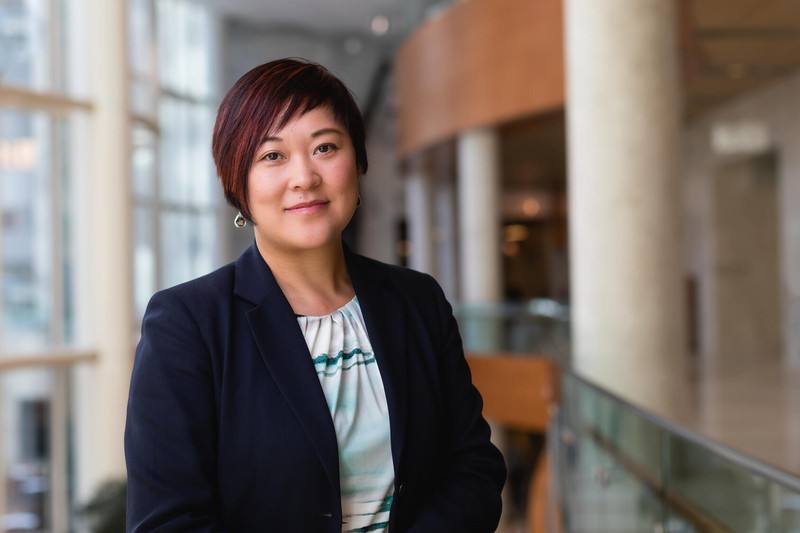-
Cancer
Science Saturday: Expanding regenerative biotherapeutics to new practice areas

As a physician at the forefront of new cancer therapies, Yi Lin, M.D., Ph.D., understands the highs and lows that patients experience. Will the latest technologies slow or stop disease? If not, is this the last, best option?
Dr. Lin, a hematologist, sees the need for a new class of drugs that provides different treatment choices for patients with complex conditions, such as cancer. As the new associate medical director for Mayo Clinic's Center for Regenerative Biotherapeutics, she'll assist in delivering promising new therapies to the practice. Dr. Lin and the center's leadership will focus on accelerating biological therapies — medicines manufactured from human sources, such as cells, blood, tissue, proteins or genes. Biologics have shown potential for more targeted healing, sometimes with fewer side effects, than standard drugs.
Among her many roles at Mayo, Dr. Lin also is the medical director of the Immune Effector Cell Program in Rochester, Minnesota, and enterprise leader of Cancer Regenerative Biotherapeutics with the Mayo Clinic Comprehensive Cancer Center.
"The technology of manipulating a patient's own cells to better enable them to do what they're naturally capable of — fight disease — is very important," says Dr. Lin. "Cellular therapies show potential for more individualized treatment for patients. The first generation of such therapies are now standard of care, with a lot more research to fully realize their potential."
"Mayo Clinic is poised to be an international leader in manufacturing new regenerative biotherapeutics. I am honored and excited to work with my colleagues to bring regenerative therapies to conditions beyond cancer to new areas of the practice." ~Yi Lin, M.D., Ph.D.
Dr. Lin launched the first chimeric antigen therapy (CAR-T) cell therapy clinical trial at Mayo Clinic and has led efforts to integrate it into the practice. CAR-T cell therapy is a regenerative immunotherapy that harnesses the body's defense system by genetically modifying cells, equipping them to go on search-and-destroy missions to kill cancer.
The Food and Drug Administration has approved six CAR-T products for blood cancers. Dr. Lin and leaders in the Center for Regenerative Biotherapeutics see the need for new CAR-T therapy options that also will kill solid tumors. The long-term goal is to apply regenerative technologies to cancer and many other conditions. Priorities include:
- Malignant cell therapies — such as CAR-T cell therapy.
- Nonmalignant cell therapies for conditions such as diabetes.
- Gene and viral therapies for treating conditions such as osteogenesis imperfecta, an inherited brittle bone disease.
- Exosomes and extracellular vesicles — exosomes act like a cargo service that delivers healing messages into damaged cells. Preclinical studies of exosomes have shown potential to regenerate skin and skeletal muscle.
- Tissue engineering & bioprinting. Examples would include printing nasal and larynx implants for restoring health after cancer.
Read the rest of the article on the Center for Regenerative Biotherapeutics blog.
____________________________________________
Other Mayo Clinic medical research websites:
- Research at Mayo Clinic
- Discovery’s Edge
- Advancing the Science
- Mayo Clinic Laboratories
- Forefront
- Center for Individualized Medicine
- Center for the Science of Health Care Delivery
- Mayo Clinic Cancer Center







